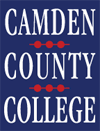
BIO-111
|
Getting Started (with the 6 Step Search Process) Following the six step Information Search Process (ISP) will save time and keep you organized through all phases of any research assignment.
|
|
If your CCC Library Card Barcode is not working, please complete the application. |
Quick Links
Semester Hours
| Monday to Thursday |
8:30am - 8:30pm |
| Friday | 8:30am - 4:30 pm |
| Saturday | 10:00am - 4:00pm |
| Sunday | CLOSED |
For holiday and break hours (including summer schedule), click here
| Subject Specific eResources |
|
Primary vs. Secondary Scientific Research Primary Sources/Research Articles
Secondary Sources/Review Articles
|
| Primary vs. Secondary Sources |
|
Research Tutorials
Citation Tutorials
Information on citations and NoodleTools, a citation tool that assists you with your works cited/reference page, can be found on the Citation Help page.
Tips for Writing a Thesis Statement |